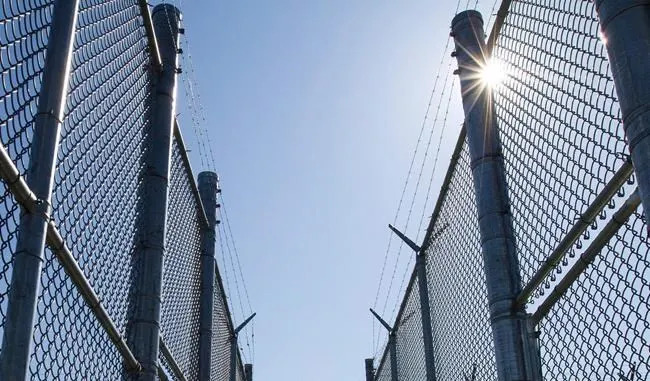
TORONTO — Urgent action is needed to fix systemic issues in Ontario's correctional facilities, an expert panel with the chief coroner's office said as it found the number of inmates who died in custody had almost doubled in recent years.
A report from the panel released this week found 25 inmates across more than two dozen facilities died in 2019, with that number rising to 46 inmate deaths in 2021.
The panel examined patterns in 186 deaths that occurred from 2014 to 2021 and deemed almost every life lost as preventable.
"Ultimately, we learned much about a criminal justice system that is struggling to deliver on basic promises ... and an in-custody reality that in its current state is increasingly both ineffective and unsafe," the report said.
"The solutions range from simple to frustratingly complex. The need for action is simply compelling and urgent."
Almost 40 per cent of the deaths examined occurred after inmates consumed a toxic drug, natural deaths accounted for 28 per cent of the deaths and 24 per cent of the inmates died by suicide, the report said.
Six additional deaths during the time period studied were deemed homicides, the report noted.
The report found more than half of inmates are in remand. Many have ongoing substance use disorders, are periodically or chronically unhoused, have suspected or diagnosed mental health conditions and suffer from trauma, it found.
The report said its yearlong investigation identified multiple areas where reforms can prevent future deaths.
Currently, facilities focus more on their historic mandate to maintain control and order, but the report suggested they need to redirect efforts towards providing "care, wellness, supportive programs and effective transitions to living in the community."
For example, the report said lockdowns in Ontario correctional facilities have become common and inmates are often placed in isolation. The report argued due to the "boredom" inmates face while under lockdown, they are turning to substance use.
"We know that the connections between isolation and suicide are already well documented," it said.
The report said the interruptions are also preventing inmates from accessing supportive programming. As a part of the ongoing implementation of control and order, the report further said inmates are having difficulty getting visits from family and friends.
"Connections to family, friends and supports are well documented factors that can protect against exacerbating mental health conditions while promoting greater wellness and supporting reintegration," the report said.
Another systemic issue the report details is what it called a severe lack of accountability and transparency. The report said there are low standards for how various departments input data on an inmate.
"Without a complete picture or understanding of a person’s unique situation, it is almost impossible to adequately meet and address their needs," the report said.
It suggested correctional facilities adopt new technology that outlines an inmate's history and that various departments, including officers and health workers, can benefit from having easy access to the information.
The report also noted a work environment that is reducing morale among correction officers and nurses who work in the facilities.
"We learned of an evident hierarchy and power imbalance that exists at the front-line between permanent employees and fixed-term employees, the latter often existing in a precarious state for several years, and far more vulnerable to punitive action by management as a result," the report said.
"This pattern represents a clear and present danger to everyone, and it is likely among the primary contributing factors to the alarming rise in deaths in custody."
The report noted the imbalance is causing stress and making it difficult for jails to recruit more officers.
The document also highlighted the need to address an overdose crisis unfolding in correctional facilities.
"Our review revealed that drugs continue to enter facilities at an alarming pace, transported by persons entering custody, visitors, lawyers and other visiting professionals, drones and by corrupt or compromised staff," it said.
Randomized screening for staff that already exists needs to be expanded to avoid drug trafficking into the facilities, the report said. It said there also needs to be wide access to naloxone, which can temporarily reverse an opioid overdose, and officers need to be educated on how to use it.
"The panel has determined that over recent years, these conditions have significantly decreased the safety for persons-in-custody," the report said.
"Improvements may ultimately reveal greater capacity for supporting persons-in-custody, for operating healthier workplaces and for preventing further deaths."
This report by The Canadian Press was first published Feb. 1, 2023.
Fakiha Baig, The Canadian Press
No comments:
Post a Comment